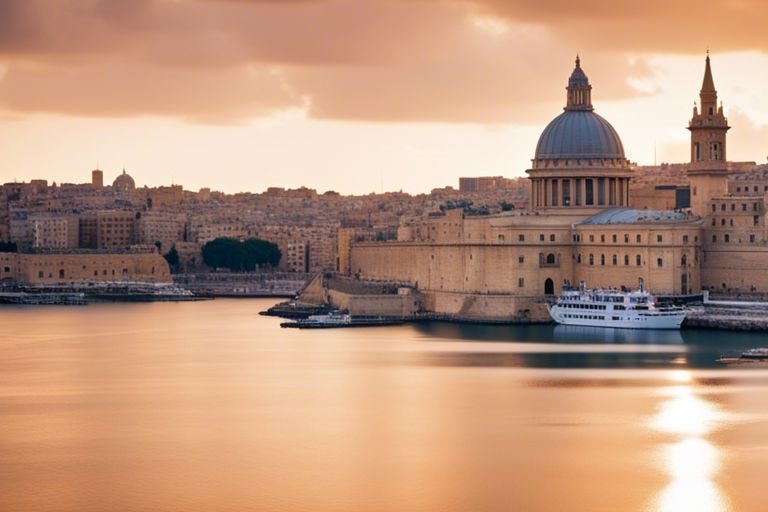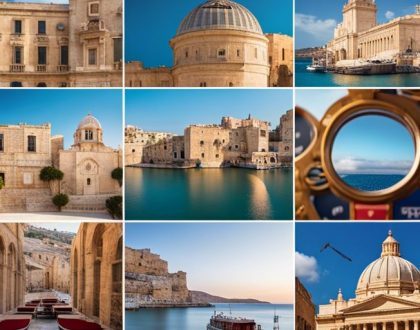Unveiling Malta’s Economic Landscape

Just off the coast of Sicily, lies the small yet powerful island nation of Malta, often overshadowed by its European counterparts in terms of economic significance. However, Malta boasts a thriving economy that has been steadily growing over the past decade. From its strategic location as a gateway to Europe, Malta has emerged as a key player in sectors such as technology, finance, and tourism. Despite its size, the country has one of the fastest-growing economies in the European Union, making it an attractive destination for foreign investors and multinational companies. Join us as we investigate into the nuances of Malta’s economic landscape and uncover the factors driving its success in the global market.
The Pillars of Malta’s Economy
Tourism Industry Overview
Before delving into the specifics of Malta’s economy, it is crucial to understand the key pillars that uphold its financial stability. One of the most significant sectors driving Malta’s economy is its thriving tourism industry.
Financial Services Sector
To further comprehend Malta’s economic landscape, the financial services sector plays a crucial role in sustaining the country’s growth and development. The stability and growth of this sector have positioned Malta as an attractive hub for international businesses seeking financial services.
The financial services sector in Malta encompasses a wide range of services, including banking, insurance, investment funds, and wealth management. The sector is closely regulated by the Malta Financial Services Authority (MFSA) to maintain transparency and integrity.
iGaming and Digital Economy
Malta’s emergence as a leading hub for iGaming and digital economy has significantly contributed to its economic prosperity. The country’s favorable regulatory environment and strategic location have attracted numerous international iGaming companies and digital businesses.
To support the growth of the iGaming and digital economy, Malta has established specialized initiatives and incentives to encourage innovation and investment in this sector. The government’s proactive approach in promoting technology and digital entrepreneurship has further solidified Malta’s position as a hotspot for digital innovation.
In conclusion, Malta’s economy is built on the robust pillars of tourism, financial services, iGaming, and the digital economy. These sectors not only drive economic growth but also showcase Malta’s resilience and adaptability in the global marketplace.
Government Policies and Economic Growth
Government policies play a crucial role in shaping the economic landscape of Malta. By implementing strategic measures and initiatives, the government aims to foster sustainable economic growth, attract foreign investment, and create a conducive environment for businesses to thrive. Let’s probe into some key areas where government policies have notably impacted Malta’s economic growth.
Tax Incentives and Business Environment
Clearly, government tax incentives and a favorable business environment have been instrumental in attracting foreign investors and corporations to set up operations in Malta. With a competitive corporate tax rate of 35%, combined with various incentives such as tax credits and deductions, Malta has positioned itself as a hub for international business.
Innovation and Entrepreneurship Initiatives
On the front of innovation and entrepreneurship, the Maltese government has rolled out several initiatives to support startups and foster a culture of innovation. It has set up funding programs, incubators, and accelerators to nurture budding entrepreneurs and help them transform their ideas into successful ventures.
It is imperative for the government to continue investing in innovation and entrepreneurship, as they are key drivers of economic growth and job creation. By fostering a culture of innovation and providing the necessary support systems, Malta can position itself as a leading player in the global economy.
Challenges and Opportunities
Addressing Skills Gaps and Workforce Development
Many countries face the challenge of addressing skills gaps and developing their workforce to meet the demands of the modern economy. To ensure Malta’s economic growth and competitiveness, it is crucial to invest in education and training programs that equip individuals with the necessary skills and knowledge. By aligning educational offerings with industry needs, Malta can cultivate a skilled workforce that drives innovation and productivity.
Sustainability and Environmental Considerations
Many opportunities lie in integrating sustainability and environmental considerations into Malta’s economic landscape. The preservation of the island’s natural resources and promotion of eco-friendly practices can not only enhance the quality of life for residents but also attract eco-conscious tourists and investors. The adoption of green technologies and sustainable business practices can lead to cost savings, improved efficiency, and a positive impact on the environment.
The focus on sustainability and environmental considerations is crucial for Malta’s long-term prosperity. By embracing green initiatives and promoting environmental stewardship, the country can position itself as a leader in sustainable development and attract investment from environmentally conscious industries. Collaboration between the government, businesses, and the community is crucial to create a more sustainable and resilient economy that benefits both current and future generations.
Challenges
One of the key challenges facing Malta is balancing economic growth with environmental preservation. Rapid development and urbanization can strain resources and lead to environmental degradation if not managed carefully. It is crucial for policymakers and businesses to prioritize sustainable practices and mitigation measures to ensure the long-term health of Malta’s environment and economy.
Final Words
Presently, Malta’s economic landscape stands as a testament to the resilience and adaptability of its people and government. Through strategic planning and investment in key sectors such as tourism, financial services, and technology, Malta has experienced significant growth and development in recent years. Despite facing challenges like the global pandemic, the country has proven to be a dynamic and thriving economy in the European Union. As the nation continues to innovate and evolve, Malta’s economic landscape remains a beacon of opportunity for investors, businesses, and individuals seeking a progressive and stable environment to thrive in.






